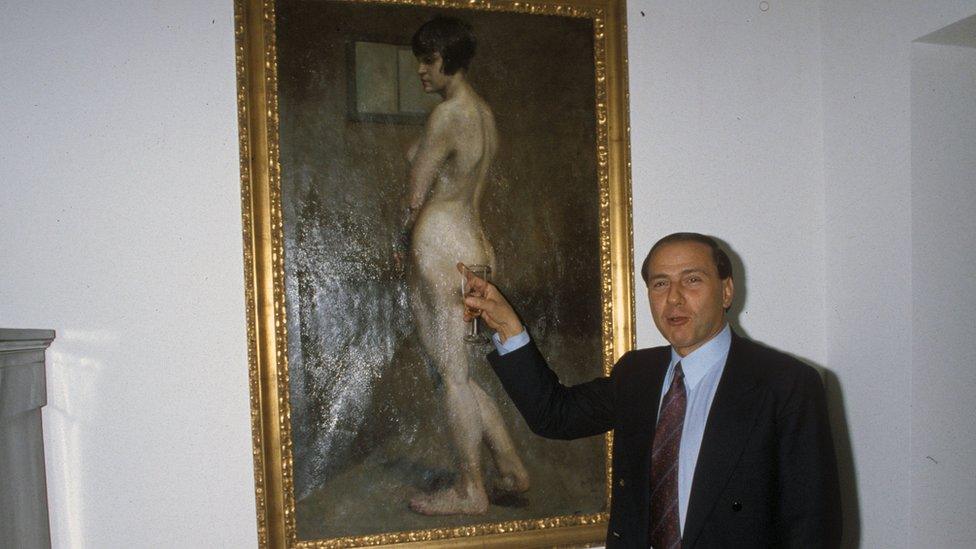Berlusconi's 'worthless' art proving a headache to heirs
- Published

Silvio Berlusconi bought much of his collection from late-night telesales programmes
The late Silvio Berlusconi's huge art collection has been mocked by one of Italy's leading art critics.
According to Vittorio Sgarbi, the 25,000 paintings are largely croste, poor quality works of little to no value.
The former Italian prime minister, who died in June, bought many of the paintings and sculptures from late-night telesales programmes.
Managing the extensive collection is proving a headache for his descendants.
The billionaire's purchases are held in a 3,200 sq m (34,400 sq ft) warehouse close to his mansion near Milan. They include paintings of Madonnas, vivid images of naked women and cityscapes of Paris, Naples and Venice among others, according to La Repubblica.
But the collection failed to impress Sgarbi, who told a magazine that "people who know little about art" might enjoy visiting a museum containing the works.
There are perhaps six or seven paintings out of 25,000 with any artistic value, he added.
The entire collection is estimated to be worth around ā¬20m (Ā£17.4m), an average of ā¬800 a painting. Berlusconi, who dominated Italian politics from the early 1990s, had a net worth of around ā¬6bn at the time of his death.
He also owned higher quality paintings, however. His main residence was decorated with works by the Renaissance painter Titian and the Dutch grand master Rembrandt.
Cesare Lampronti, a London-based art dealer who maintained a close relationship with Berlusconi for three decades, told the “óĻó“«Ć½ that the billionaire was an impulsive buyer.
"He liked to buy portraits of women he gave as gifts to friends. When he was younger, he bought at galleries and from dealers, but later in life he bought from TV auctions," Lampronti said.
"He knew what he was buying was worthless."
Berlusconi's heirs are finding that the enormous collection is a cumbersome burden. The warehouse housing the art costs around ā¬800,000 a year to run, La Repubblica said.
Woodworms have already destroyed part of the collection. In some cases, the cost of exterminating the pests exceeds the value of the paintings.
Related topics
- Published12 June 2023
- Published6 July 2023
- Published18 November 2010